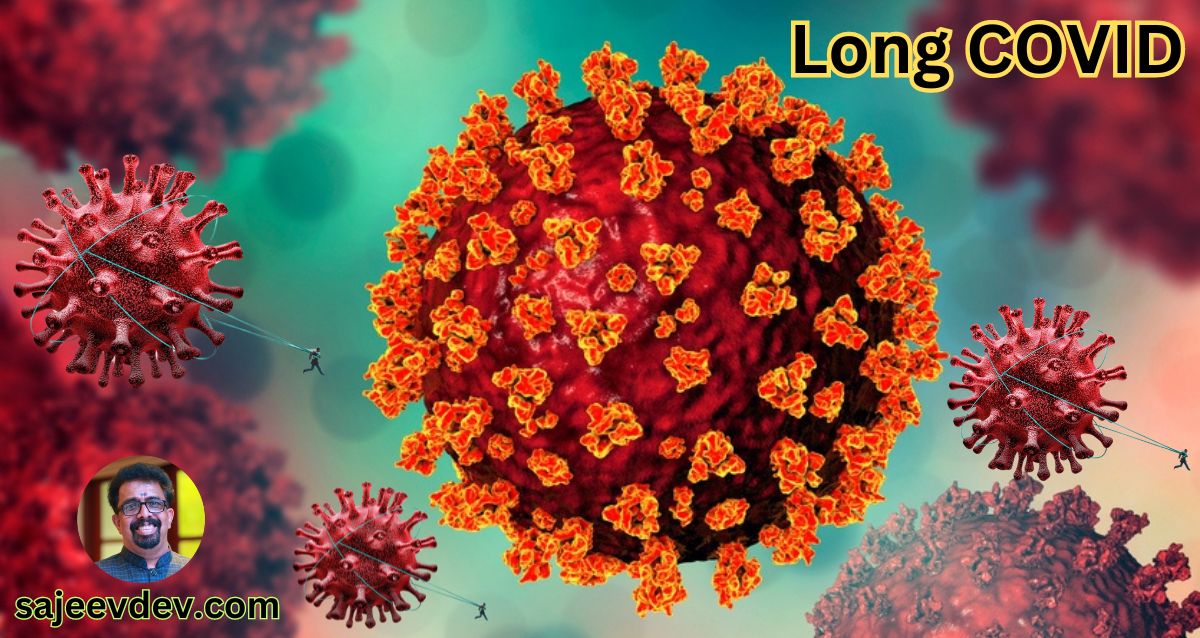In recent years, the concept of self-care has gained significant traction, particularly as global events have compelled individuals to reevaluate their health and wellness priorities
In recent years, the concept of self-care has gained significant traction, particularly as global events have compelled individuals to reevaluate their health and wellness priorities. The COVID-19 pandemic acted as a catalyst, illuminating the importance of mental, physical, and emotional well-being in our daily lives. With the widespread emphasis on health, consumers are increasingly seeking ways to enhance their well-being, leading to a notable surge in interest surrounding fitness, mental health, and personalized nutrition.
This growing awareness has shifted the narrative around health, propelling self-care from a mere trend into a mainstream necessity. For many, the pandemic fostered a newfound appreciation for health management, prompting individuals to explore various avenues—from exercising regularly to practicing mindfulness. As a result, fitness culture has transitioned from a niche or aspirational lifestyle to an integral part of daily routines for a significant portion of the population. Gyms and virtual fitness platforms have seen an uptick in participation, as people seek to incorporate physical activity as a fundamental aspect of self-care.
Moreover, the focus on mental health has intensified, with many acknowledging the psychological impacts of isolation and uncertainty during the pandemic. Discussions around mental wellness are no longer stigmatized; rather, they have become central to the dialogue about overall well-being. Practices such as meditation, therapy, and stress management are being widely adopted, reflecting a commitment to nurturing mental health as a critical component of self-care.
Equally important is the rise of personalized nutrition, where individuals are beginning to understand that one-size-fits-all dietary guidelines may not serve their unique needs. Tailored nutritional plans and an increased interest in holistic health approaches are becoming commonplace, allowing consumers to take proactive steps toward improving their overall wellness. This transformative period has set the backbone for a deeper exploration into these health and wellness trends, which will be addressed in the following sections.
Fitness Trends: The New Paradigms Shaping Our Workouts
In recent years, there has been a significant shift in the fitness landscape, fueled by various trends that are reshaping how individuals approach their workouts. One notable trend is the rise of online fitness classes, which have become increasingly popular due to their convenience and accessibility. These virtual classes allow participants to engage in guided workouts from the comfort of their homes, eliminating the need for commuting to a gym. As technology continues to advance, many fitness enthusiasts find online platforms to be a flexible and effective way to maintain their exercise routines.
At-home workout regimes have also gained traction, particularly in response to the global circumstances that have limited access to traditional fitness facilities. This shift has encouraged individuals to explore different types of exercise, ranging from strength training to yoga and high-intensity interval training (HIIT). The appeal of at-home workouts lies not only in their convenience but also in the ability to customize one’s routines according to personal fitness levels and preferences. Consequently, many people are discovering innovative ways to incorporate physical activity into their daily lives, further emphasizing the importance of maintaining physical health.
Furthermore, the integration of technology into fitness has transformed how individuals track their progress and monitor their health metrics. Wearable fitness devices and apps offer users the ability to keep tabs on everything from heart rate to calories burned, helping them stay motivated and accountable. These technological advancements cater to a modern audience that values data-driven results, allowing individuals to set personalized goals and assess their performance over time. As fitness trends continue to evolve, it is evident that these changes signal a growing recognition of the significance of physical health and active lifestyles in today’s society.
Mental Health Awareness: Breaking the Stigma
In recent years, mental health awareness has gained tremendous traction, with a significant increase in public discourse surrounding issues such as anxiety, depression, and stress management. This surge in interest is evidenced by rising search volumes for mental health resources, indicating a collective shift towards prioritizing psychological well-being. As individuals become more aware of mental health conditions, they are less likely to suffer in silence and more inclined to seek therapy and support.
One of the primary factors contributing to this shift is the growing understanding that mental health is as vital as physical health. For many, acknowledging their mental health struggles has become an empowering act, one that reflects a willingness to confront and address issues that previously may have been viewed as taboo. The digitization of mental health resources has played a crucial role, as people now have access to a variety of options including online therapy, mindfulness applications, and stress management workshops.
Moreover, societal changes have significantly contributed to the dismantling of long-held stigmas associated with mental health. Advocacy campaigns and the increased visibility of mental health discussions in media and popular culture have cultivated more open conversations. Influencers and public figures discussing their personal experiences with mental health challenges help normalize the conversation and encourage others to seek help. The availability of these resources fosters an environment where individuals feel comfortable acknowledging their struggles, thus paving the way for a more supportive community.
In essence, as society embraces mental health awareness, there is a growing recognition of the importance of therapeutic interventions, mindfulness practices, and effective stress management techniques. This evolution in mindset is not just significant—it’s transformative, leading to greater acceptance and understanding that mental health deserves as much attention as physical health. This holistic approach fosters a culture where individuals can seek assistance without fear of judgment, ultimately promoting a healthier, more informed society.
The Personalized Nutrition Movement
As the health and wellness landscape evolves, the concept of personalized nutrition has garnered significant attention. This movement focuses on tailoring dietary patterns based on individual needs, which may include genetic predispositions, metabolic rates, and microbiome composition. Personalized nutrition acknowledges that there is no one-size-fits-all approach to diet; instead, it suggests that diets can be optimized by considering various personal factors, ultimately leading to better health outcomes.
At the core of this movement is the recognition of how genetic factors influence dietary responses. Recent advancements in genomic research have unveiled that individuals process nutrients differently due to variations in their DNA. Health tech companies have sprung up, providing services that allow people to undergo DNA testing to gain insights into their unique dietary requirements. For instance, some individuals may metabolize carbohydrates more efficiently than others, thus benefiting from a higher carbohydrate intake.
Moreover, the examination of the microbiome—the collection of microorganisms living in the human gut—has also played a pivotal role in personalized nutrition. Studies correlate specific gut bacteria with particular health outcomes, indicating that what works for one person’s gut may not work for another’s. This understanding has propelled nutrition coaching services that provide dietary recommendations tailored to an individual’s gut health and microbial diversity.
The intersection of technology and nutrition marks another leap forward for this movement. With the use of mobile applications and wearable devices, individuals can track their dietary habits and receive guidance based on real-time data. This data-driven approach enables more informed choices that align closely with an individual’s health goals and nutritional requirements.
In essence, personalized nutrition represents a progressive paradigm that acknowledges the complex relationship between diet and individual biology, emphasizing the importance of customizing dietary intake for optimal health. As this field continues to develop, it holds promise for helping many people achieve long-term wellness goals.
The Intermittent Fasting Craze: Benefits and Debates
Intermittent fasting (IF) has rapidly gained traction as a popular dietary trend, fostering considerable interest in its potential health benefits and scientific grounding. At its core, intermittent fasting involves cycling between periods of eating and fasting, rather than restricting specific food types. Various methods, such as the 16/8 approach—where individuals eat for eight hours and fast for 16—or the 5:2 diet—allowing normal eating five days a week while restricting calorie intake on the remaining two—have emerged as favored strategies.
Proponents of intermittent fasting highlight its diverse range of potential benefits. Research has suggested that this eating pattern may enhance metabolic health, improve insulin sensitivity, and promote weight loss by reducing calorie intake. Moreover, studies have indicated that intermittent fasting can catalyze cellular repair processes and trigger autophagy—a process by which cells eliminate unnecessary or malfunctioning components, potentially reducing the risk of chronic diseases.
Additionally, the psychological benefits of intermittent fasting are gaining acknowledgment. Some individuals report an improved relationship with food, as fasting periods can lead to increased mindfulness regarding eating habits and choices. The structure it provides may also help individuals develop discipline and control over their cravings.
However, intermittent fasting is not devoid of criticism. Skeptics argue that the long-term effects of such a dietary approach remain inadequately studied. Concerns about the sustainability of fasting methods and potential negative impacts, including binge eating during non-fasting hours and nutrient deficiencies, instigate a healthy debate among health professionals. Furthermore, intermittent fasting may not suit everyone, particularly individuals with specific medical conditions or those who are pregnant or breastfeeding.
In essence, while intermittent fasting showcases significant potential benefits, it is crucial to engage in informed discussions and consider personal health goals and circumstances before embarking on this dietary journey.
Amplifying Self-Care: Holistic Approaches to Wellness
In recent years, there has been a noticeable shift in how individuals perceive health and wellness, transitioning from a predominantly physical focus to a more holistic approach. This comprehensive view encompasses physical health, mental well-being, and nutrition, promoting an integrated model for self-care. By acknowledging the interconnectedness of these aspects of health, individuals can embark on a journey towards comprehensive well-being.
One essential component of this holistic approach is recognizing that mental health plays a crucial role in overall wellness. Practices such as mindfulness meditation, yoga, and journaling can significantly improve mental resilience and emotional regulation. By incorporating these activities into daily routines, individuals can cultivate a more balanced emotional state, reduce stress, and foster a greater sense of self-awareness.
Nutrition also remains a fundamental pillar of holistic wellness. A balanced diet rich in whole foods, vitamins, and minerals not only fuels the body but also supports brain health and emotional stability. Engaging in mindful eating practices, such as being conscious of portion sizes and choosing nutrient-dense foods, allows individuals to foster not just physical strength, but also mental clarity and emotional balance.
Furthermore, physical activity is another vital aspect of self-care that contributes to holistic wellness. Regular exercise releases endorphins, the body’s natural mood lifters, which can alleviate stress and enhance overall happiness. Whether through structured workouts or spontaneous outdoor activities, finding enjoyment in movement can lead to sustainable fitness habits that nurture both the body and mind.
In summary, a holistic approach to self-care emphasizes the integration of physical health, mental well-being, and nutrition for overall wellness. By adopting practices that address each of these dimensions, individuals are empowered to create balanced lifestyles that promote lasting health and happiness.
The Role of Social Media in Promoting Health Trends
In recent years, social media has emerged as a significant force in shaping health and wellness trends, particularly through platforms like Instagram and TikTok. These digital channels have transformed the way fitness challenges, diet fads, and mental health campaigns are disseminated and experienced by the general public. Users now have access to a wealth of information, often shared in visually appealing formats, making health-related content more engaging and relatable.
Fitness challenges, for instance, have gained immense popularity on these platforms. Influencers and everyday users alike share their personal journeys and results, motivating followers to participate in various exercise regimes. This sense of community not only boosts engagement but also fosters a sense of accountability among participants. As these challenges go viral, they encourage a broader audience to adopt healthier lifestyles, potentially leading to positive changes in individual behavior.
Moreover, the rise of diet fads promoted through social media cannot be overlooked. Inexpensive and visually enticing meal preparations shared via Instagram stories often entice users to explore new dietary choices. Nonetheless, this trend carries both positive and negative implications. While some may find authentic, beneficial nutritional information, others may encounter misleading content or restrictive diets that could adversely affect their health. It is vital for users to approach these trends with a critical eye and to seek guidance from healthcare professionals when needed.
On the other hand, mental health awareness campaigns on social media platforms have gained traction, thanks to the openness and vulnerability many influencers display. This has sparked crucial conversations surrounding mental well-being, breaking down stigmas and encouraging individuals to seek help. However, the digital landscape is a double-edged sword; while it can provide support and useful resources, it can also perpetuate unrealistic standards and trigger anxiety among users. In summary, the role of social media in promoting health trends is complex, highlighting both the potential for positive influence and the necessity for mindful engagement with the information presented.
Global Health Concerns: A Catalyst for Change in Health Mindsets
The recent surge in global health concerns has fundamentally altered perceptions toward personal wellness and public health. The COVID-19 pandemic, in particular, has highlighted critical vulnerabilities within health systems and emphasized the importance of proactive health management. Alongside the immediate consequences of the virus, this global crisis has catalyzed a broader dialogue about the necessity of maintaining overall health for both individuals and communities.
As individuals began to grapple with the immediate impacts of the pandemic, including isolation and uncertainty, there was an observable shift in health mindsets. People started prioritizing their physical, emotional, and mental well-being, seeking out ways to bolster their immunity and resilience against such unprecedented challenges. This heightened awareness has paved the way for a more integrated approach to health, emphasizing not just physical fitness, but also mental wellness and nutritional integrity.
The relationship between global health crises and public sentiment is not new; history shows that pandemics often serve as a wake-up call for societies. In response to the COVID-19 pandemic, many individuals turned to fitness regimes, alternative health therapies, and personalized nutrition plans. The increased focus on health in daily routines reflects a shifting attitude that recognizes the long-term benefits of wellness over mere symptom management.
Institutions and organizations have also taken note of this cultural shift. From governments implementing health campaigns to companies enhancing workplace wellness programs, there is a concerted effort to adapt to the evolving health landscape. As more people embrace the idea of holistic health, the potential for sustainable changes in lifestyle and community health initiatives is promising. Such movements suggest that global health concerns can act not only as a catalyst for immediate change but also as a driving force behind a long-lasting commitment to health and wellness.
As the exploration of health and wellness trends reveals, the landscape of personal well-being is continuously evolving. In recent years, there has been a noticeable surge in the focus on fitness, mental health, and personalized nutrition
As the exploration of health and wellness trends reveals, the landscape of personal well-being is continuously evolving. In recent years, there has been a noticeable surge in the focus on fitness, mental health, and personalized nutrition. These trends underscore a societal shift towards holistic health, where physical, mental, and nutritional aspects are interconnected and prioritized equally. The increasing acknowledgment of mental health as a critical component of overall well-being has led to a growing number of individuals seeking support through therapy, mindfulness practices, and other self-care techniques.
Moreover, the fitness industry has adapted to the preferences of modern consumers, emphasizing accessibility and inclusivity. With the rise of technology, fitness apps, virtual classes, and community-driven online platforms have made it simpler for individuals to pursue their health goals from the comfort of their own homes. This democratization of fitness has empowered more people to incorporate physical activity into their daily routines, further contributing to the unprecedented rise in health-conscious choices.
Another critical aspect of health and wellness trends is the move towards personalized nutrition. The growing interest in individualized diets, guided by genetic insights and personal health data, has encouraged many to make informed decisions about their eating habits. This trend promotes a deeper understanding of nutrition’s role in health, leading to enhanced physical and mental performance. It is essential for readers to remain engaged and informed about these evolving dietary practices and their benefits.
In summary, the ongoing trends in health and wellness invite us to embrace a proactive approach toward our well-being. By prioritizing self-care, staying informed, and adapting to these innovations, individuals can foster healthier lifestyles that nurture both their physical and mental health. As we look to the future, let us commit to continuing this journey towards optimal wellness.



